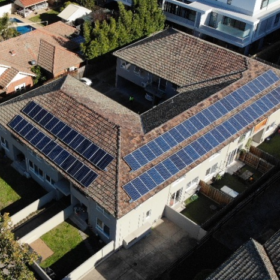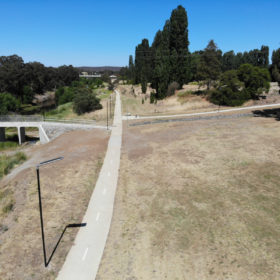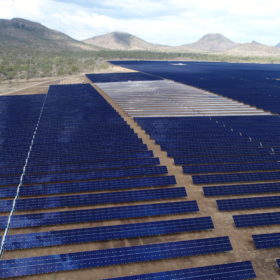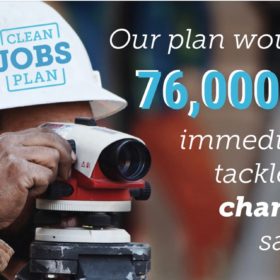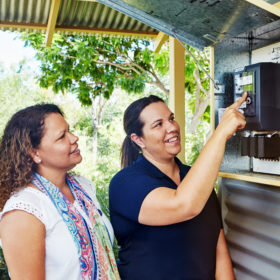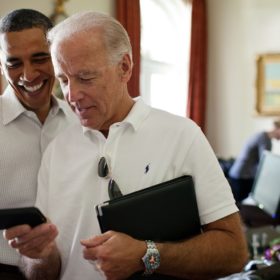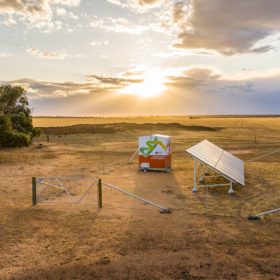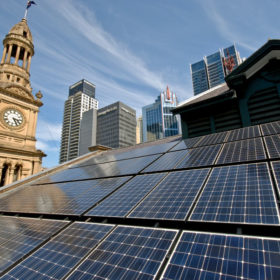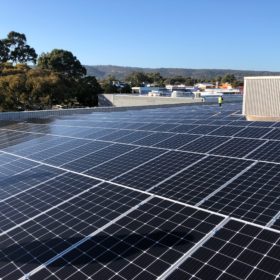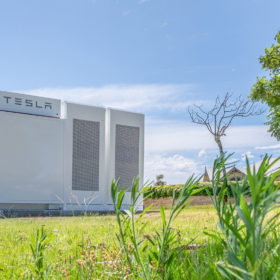NGOs to generate funds from solar energy under world-first model
Many charities might find it a stretch to allocate the capital for their organisations to become solar powered, but Australian startup Allume Energy, with the help of funding from ARENA, is set to test an everyone’s-a-winner solution.
Solar lights a pathway through lockdown
Thanks to the Covid-19 many of us find ourselves in lockdown with little reprieve other than a morning potter or an evening stroll. In Goulburn, thanks to what is being called Australia’s largest solar lighting installation, locals can now more easily walk and cycle their way to the salutary effects of a daily jaunt.
Queensland election 2020: A chance for renewables-driven economic bonanza
As Queenslanders ready to head to the polls, the Clean Energy Council has reminded all parties about the economic opportunity presented by the state’s solar and wind resources.
New modelling highlights clean jobs potential for economic recovery
New economic modelling from Accenture’s AlphaBeta has found 76,000 clean jobs just waiting to be created over the next three years if a green recovery from the twin recoveries from the Black Summer Bushfires and Covid-19 were implemented. The Plan, commissioned by the Climate Council, breaks down potential jobs in the hardest hit regions and occupations.
The weekend interview: Empowering reconciliation
Western Australia’s Horizon Power is relatively unique among electric utilities – it supplies small cities, big and small agricultural and mining operations, and some of the most remote indigenous communities in the world. It has been a genuine pioneer in delivering cheaper, cleaner power through a combination of renewables and energy storage. It’s also awake to the opportunities for solar and storage to empower the Aboriginal and Torres-Strait Islander communities it serves, explains Horizon’s Roanna Edwards.
Biden-Sanders task force calls for 500m solar panels in five years
A wide-ranging joint report published by the Democratic presidential candidate and his former rival includes the section: ‘Undoing the harms of the Trump administration and righting the wrongs.’
Western Power delivers first community SPS
The Nowanup property is a keystone in south-west Western Australia’s biodiversity regeneration, and now, with the installation of a stand-alone power system (SPS) from Western Power, the spur of the line property is no longer subject to routine outages from storm and bushfire interruptions. With self-sufficiency, Curtin University can now expand its Bush Campus into the property to better facilitate Noongar education.
City of Sydney flicks the switch to 100% green power
From today, the City of Sydney will run entirely on renewable energy generated from wind and solar farms in regional NSW.
City of Adelaide switches to 100% renewable electricity
From today, Adelaide’s council-owned properties will be run entirely on renewable energy as part of a power purchase agreement inked with Flow Power.
WA community battery rollout continues: Tesla battery launched in Port Kennedy
The Western Australia government has installed the state’s sixth grid-connected community PowerBank battery, taking the total number of shared battery storage systems on the Western Power network to 13.
